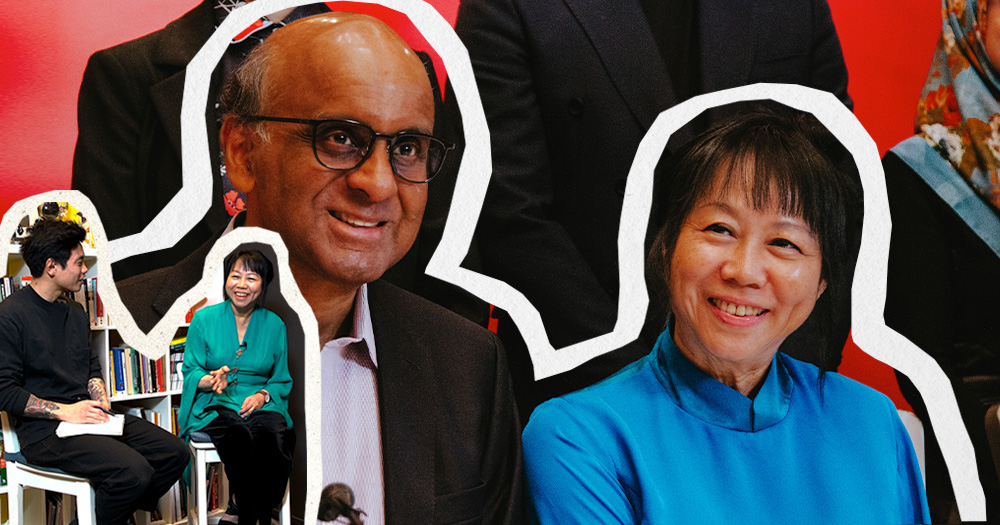
 When I asked Jane Ittogi for a poem that she believes every young Singaporean should read, she doesn't skip a beat.
When I asked Jane Ittogi for a poem that she believes every young Singaporean should read, she doesn't skip a beat.
"Auguries of Innocence" by William Blake, she told me immediately, pointing to the first stanza:
To see a World in a Grain of Sand
And a Heaven in a Wild Flower
Hold Infinity in the palm of your hand
And Eternity in an hour
For many years, Ittogi confessed, she'd misquoted and misunderstood the poem. Not by miles, but enough that its true beauty had been veiled.
"I thought all along it's about just the beauty of one moment in time. But actually, the poem is much, much more. It's a challenge," she said.
"It's telling you, in any moment, you choose how beautiful, how significant it is."
One such experience, you might imagine, was the first time Ittogi met Tharman Shanmugaratnam.
"I think it was pretty dark, and he was sort of this tall figure — I'm thinking of that first moment," she told me, casting her mind back more than 30 years after the fact.
The pair were both studying at the London School of Economics; Ittogi sitting for her postgraduate degree in law and Tharman starting his undergraduate studies in economics.
"We had friends in common, and there was a pretty broad sprawling conversation," Itoggi said.
As it turned out, they shared an interest in poetry and had been reading a few of the same poets.
"And for a while, he spoke poetry with me — that was certainly a moment."
10 years later, they were married.
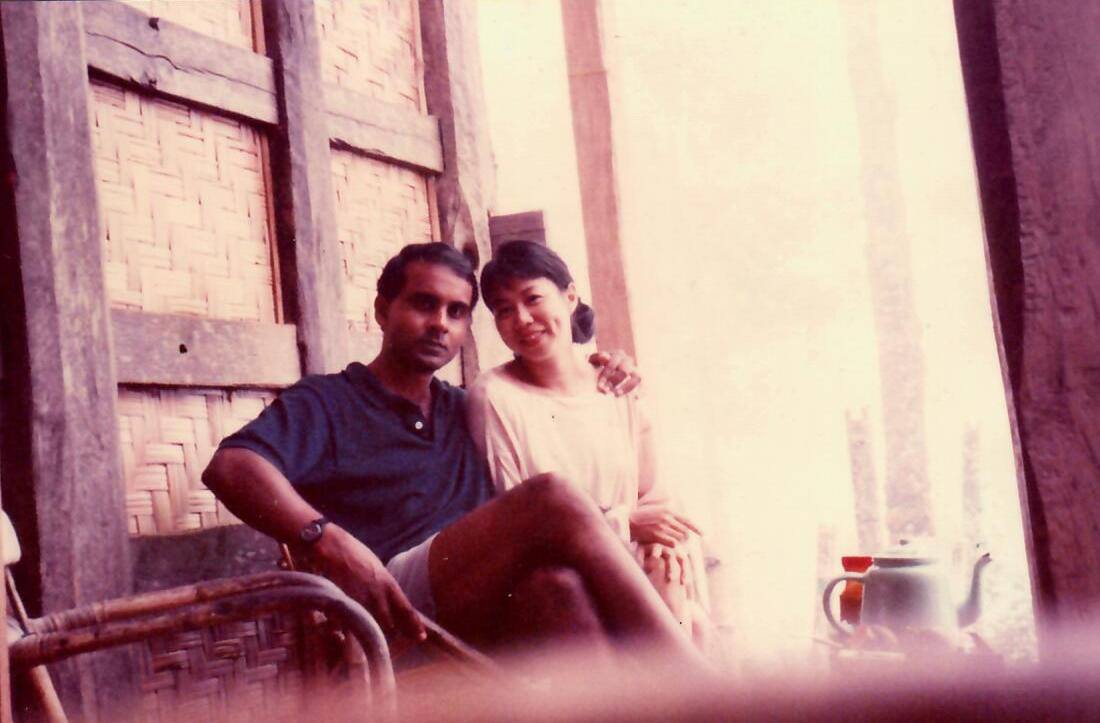 Image courtesy of Jane Ittogi
Image courtesy of Jane Ittogi
The urgent and important work of "Mrs T"
Not much is known about "Mrs Tharman" — or "Mrs T" as residents affectionately call her — apart from the fact that she is married to one of Singapore's most popular statesmen.
Yet, Tharman's 2023 Presidential Elections (PE2023) aspirations have inevitably cast his wife into the public eye.
The spotlight firmly found Ittogi when, seated next to her husband at a Jul. 26 press conference to introduce his PE2023 assenters, she was asked how she felt about Tharman's decision to run for President.
"In our relationship, it's often said that I have the last word," she quipped.
"But on this decision, it was really tough to have the last word."
That witty response — along with Ittogi's succeeding comments relaying her husband's promise that her work in the community with the disadvantaged, the arts, and sustainability would not be curtailed — announced to Singapore that this was a woman not content with "just being the wife of Tharman".
"Can you say that in public now?" she jibed playfully.
"He's silent [now] but he said that to me in private and so I therefore happily supported [his decision to run for President] because none of what I believe, which I think are urgent and of current importance, will be affected."
@mothershipsg happy wife happy life ✨ #sgnews #tiktoksg #tharman ♬ original sound - Mothership
Street-cred Singlish
So who is the woman who could be Singapore's first lady?
When I met Ittogi at Mothership's office for our chat, all the playfulness, charm, and determination displayed within two lines at the press conference gave way to a more soft-spoken individual who joked that she was nervous about speaking on camera.
Born to a Japanese father and a Singaporean mother, Ittogi moved to Singapore as a three-year-old and grew up in a Teochew-speaking kampong.
"When 'Phua Chu Kang' came on TV, I used to tell my children: 'Oh my god, his Singlish is so bad'. Because I went to Braddell Rise School and we spoke street-cred Singlish," she said.
As she described it, Ittogi's formative years gave her not just a mastery of local parlance, but a keen sense of community.
"Your sense of how you fitted in was very different," she recalled.
"It was not defined by houses and doors and surnames. It was who was playing with who on the streets and which neighbour was disciplining who. It wasn't necessarily her own son or her neighbour's son. It was just disciplining kids as a whole... we were so lucky, actually, that we had that kind of interweaving of each other's lives."
That kind of upbringing should have produced so many more artists and poets, mused Ittogi. Yet, Singapore's transition to a modern economy meant that young people were herded towards more pragmatic destinations.
One incident from Ittogi's time as a student at National Junior College highlights the zeitgeist of 1970s Singapore; referencing Rudyard Kipling's poem "The Ballad of East and West" and merging it with ideas expressed in CP Snow's "The Two Cultures", the school's principal admonished students who were daring to dream of a career in the arts.
"He said — or at least that was the lesson I got from it — 'Arts is arts and science is science and the twain shall never meet'," remembered Ittogi.
"It was clearly just giving us a sort shaking up and telling us: 'you are not worthy of scholarships, or interest from me if you're interested in the humanities'. But he was right at the time... we were building infrastructure."
"I think that's why I have such a great love of the arts," she explained, "when something is sort of diminished, you treasure it and you want to learn more about it".
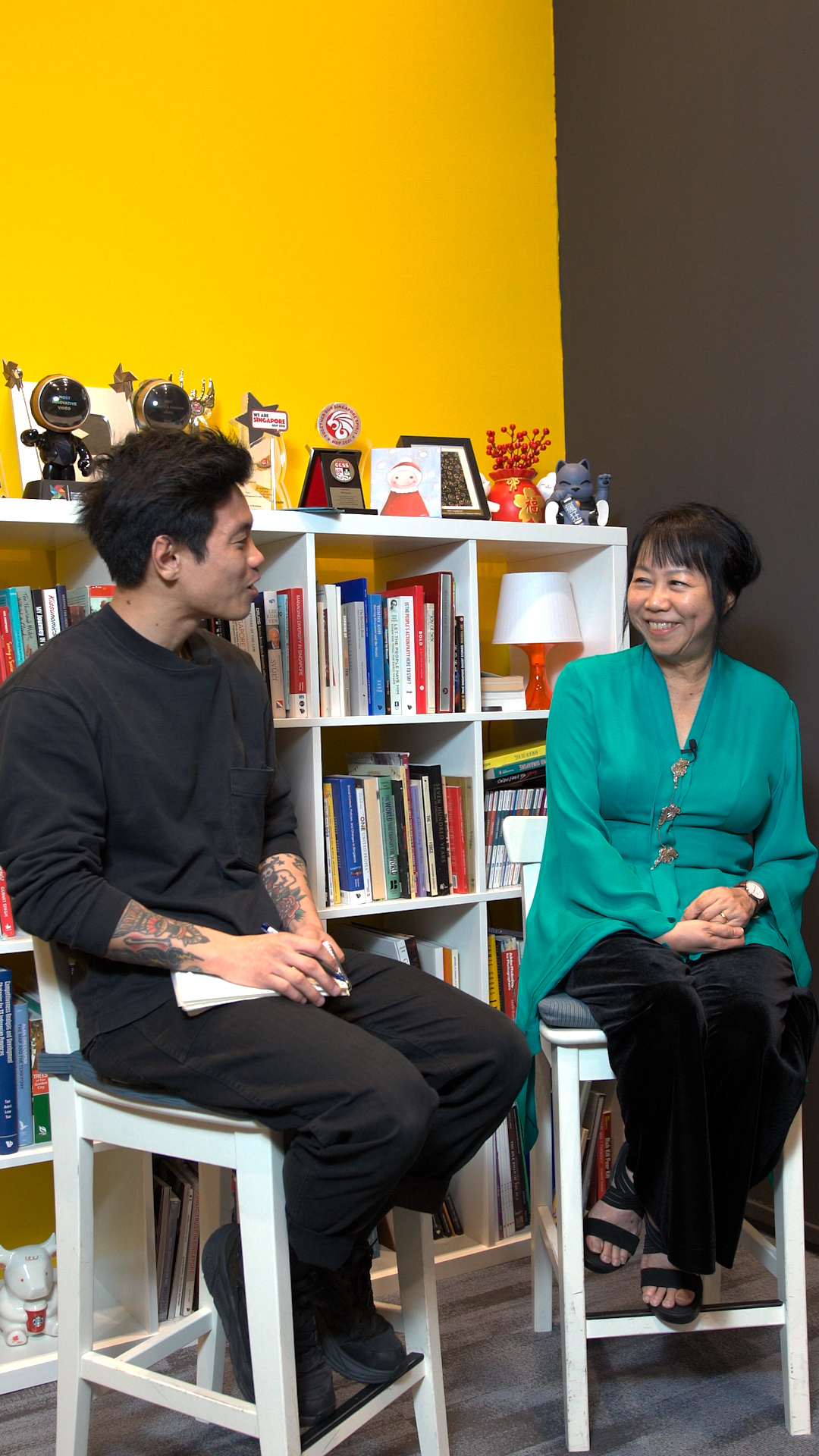 Image by Mothership
Image by Mothership
Studying to understand the world
It would be a few decades before Ittogi would translate that love into work within the community.
Her tertiary studies would see her arrive in the United Kingdom at a rather dramatic juncture in history.
The world at the time seemed engrossed with the Vietnam War and the Chilean coup d'etat which saw the downfall of socialist heroes like Salvador Allende, Pablo Neruda, and Victor Jara; "It was that kind of time," said Ittogi.
Ittogi found herself amazed at her peers who were not only keenly interested in such events but also taking a position on them and advocating for that position.
"I do think that if you're a student, this part of your life is not about studying for exams, it is about studying to understand the world."
After concluding her postgraduate studies in law, Ittogi joined a leading barristers' chambers, working with some of London's top Queen's counsels.
She later went on to work as a law lecturer at an undergraduate and postgraduate level, before returning to Singapore in the 80s as a features and leader writer for The Straits Times.
"Wow, fantastic people at the newspapers — the nicest, the most fun people... just full of life," enthused Ittogi.
"So that was the main thing I realised when I came back, that Singaporeans are so fun."
It was here that Singapore had its first taste of Jane Ittogi, the advocate.
Among the work that appeared under her byline was an op-ed titled "Men! You can learn so much more", a 1,400-word examination of gender equality within the family setting.
Written just after the passing of International Women's Day in 1985, the op-ed ended with a reprimand for males; "for many men, it was a day to remember that they have yet to acquire the skills to be fully responsible fathers and husbands".
Arts and the disadvantaged
Nowadays Ittogi, moves in a less outspoken manner.
Before Tharman's presidential bid, her work championing the arts and the plight of the disadvantaged was mostly conducted behind the scenes without too much public fanfare.
For example, not many would know that she guided the corporatisation of the Singapore Art Museum during her 10-year stint as chair of the museum's board. Or that she was co-chair of the Singapore Biennale 2019 Steering Committee (as she was for the three preceding Singapore Biennales).
Even less publicised might be the impact on individual lives that Ittogi has within the community.
Among those who would count themselves as a beneficiary of that work is Kim Whye Kee, a former gang leader turned ceramic artist.
Kim remembers meeting Ittogi at a Yellow Ribbon art exhibition in 2008; he had taken pottery classes while in prison and a vase he'd made then had caught her eye.
"One lady came to talk to me," the artist told me.
"She introduced herself as Mrs Tharman and asked me where I lived. I told her Taman Jurong. She said ‘Great! My husband is an MP (member of parliament) there. Why don’t you come and help us.’ So the following Monday I went along to the Meet-the-People Session."
From that interaction, Kim began to put together the foundations for a successful life after prison. Ittogi eventually introduced him to renowned Singaporean artist Henri Chen KeZhen who would become his mentor. Six months later he was taking classes for a Bachelor of Fine Arts at Lasalle College of the Arts.
Today, Kim runs Qi Pottery, specialising in creating artisanal teaware.
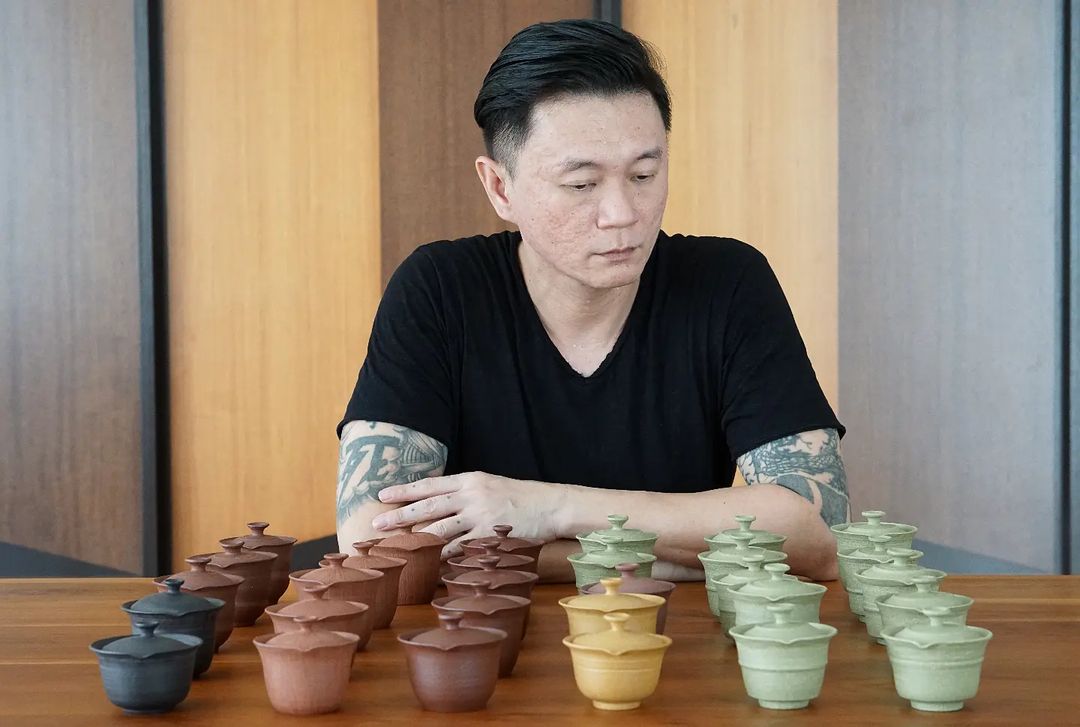 Image from Kim Whye Kee's Instagram
Image from Kim Whye Kee's Instagram
In hopes of scaling such outcomes as seen in Kim's life to the wider community, Ittogi founded Tasek Jurong in 2014.
The NGO supports a range of beneficiaries including the socially disadvantaged, ex-inmates, youth-at-risk, single parents, and persons with disabilities.
Unsurprisingly, among the initiatives that the NGO runs are art, music, and dance programmes.
Accidental hope
Such work illustrates Ittogi's firmly held belief in the importance of art.
No doubt some might scoff at what they deem to be the whimsical pursuit of promoting the arts in a country as dogmatically practical as Singapore.
However, Ittogi has seen firsthand its potential to be transformational in an individual's life.
In her telling, her own work regarding social issues in Singapore was sparked "by accident" with a trip to Changi Prison in 2006.
She'd been invited to the prison as a judge for a poetry competition among the inmates.
"I said, 'poetry in prison? Sure!' Because I had that deep love of poetry," said Ittogi.
"And there was a list of instructions: wear no jewellery, minimal makeup or whatever, and no phones. So I went."
The competition had already seen several rounds, and Ittogi and her fellow judges — which included famous actors and media personalities — would be appraising the poems of 20 finalists, five from each of the major languages spoken in Singapore: Chinese, Malay, Tamil, and English.
"I thought, 'my goodness, so many entries' So I asked to speak to the other judges, and we went behind and I said, 'let's not do first, second, and third'. Why on earth do we want to grade something that is so deep in people?"
Instead, it was decided that the judges would simply comment on poems that they enjoyed.
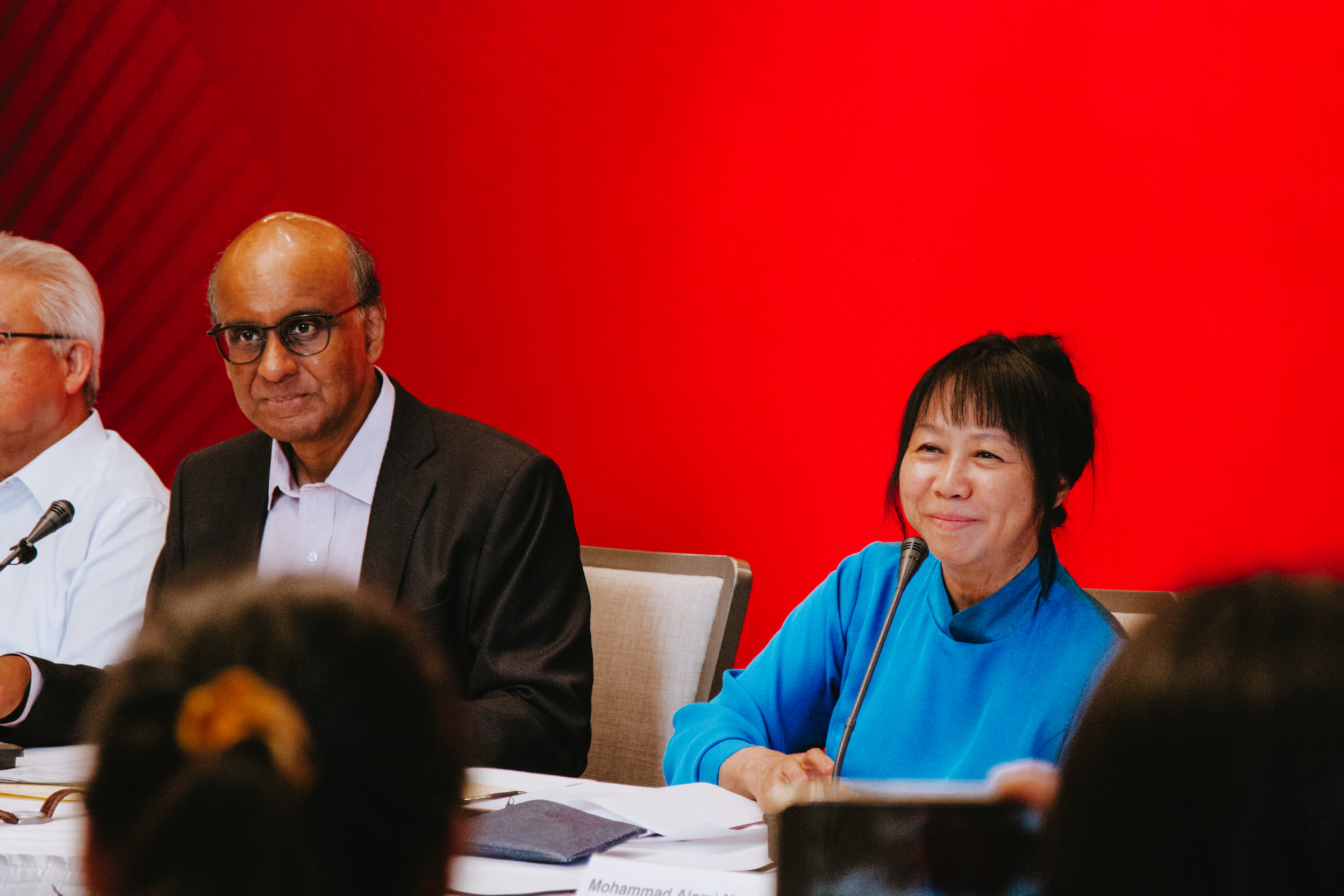 Image by Andrew Koay
Image by Andrew Koay
With the panel seated at the front of an auditorium, inmates were brought in one by one to read out their work on stage while a television crew captured the event.
The first poet to recite his work had written in Tamil.
"By the time he reached the third line, he was saying something 'Amma' and I looked at him and I was so embarrassed — I couldn't bear to look at him because I began to cry."
Having left her tissues in her bag that she'd surrendered before entering the prison, Ittogi turned to hide her face from the cameras.
"And behind me, were prison wardens with boxes of tissues, and they were wiping their eyes," she said.
"I sort of burst out laughing... because what a moment of revelation! We're in the prisons and this person is reading, and people were asking me if I understood Tamil. I said 'no, it's just that this is pure emotion'.
And that was the moment when the lights came on, literally. When you felt art crosses so many things in the person too."
It was another moment in time; another experience that greatly impacted the course of her life.
"I felt that there was so much hope," said Ittogi, her eyes reddening with tears again, 17 years after the fact.
"There was so much hope."
Top image by Andrew Koay and Mothership
If you like what you read, follow us on Facebook, Instagram, Twitter and Telegram to get the latest updates.

